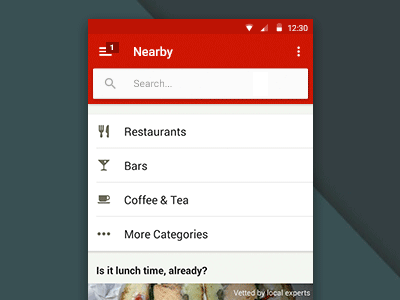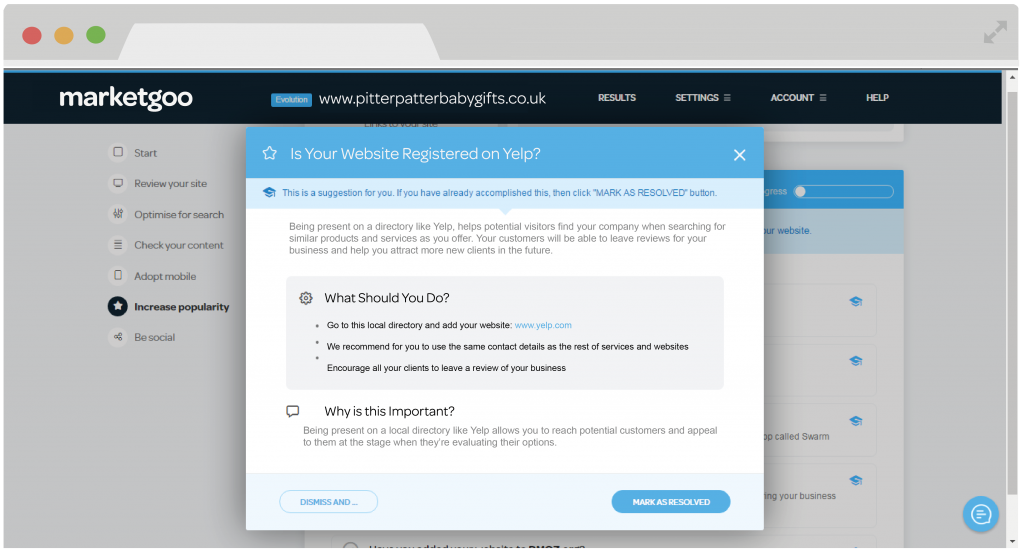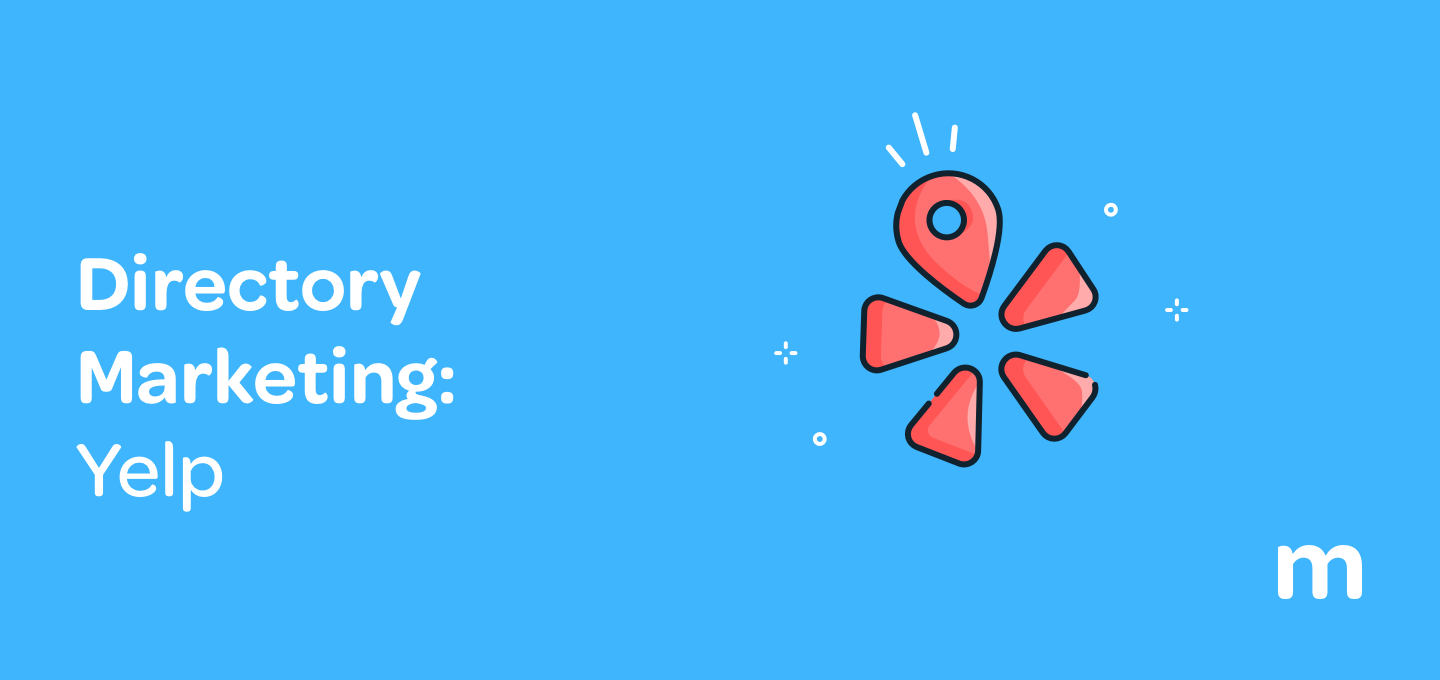About this series:
Our posts marked ‘Academy’ are meant to serve as short lessons in general marketing concepts with specific examples and how they can apply to your SEO and Website Marketing efforts for your site.
What is Directory Marketing?
Online directories offer contact details, hours of operation and customer reviews to anyone viewing the listing page for your business. The names Yelp, Foursquare, YellowPages and Google my Business among others, are no doubt familiar to you as you explore the ways potential customers find your business. They can be grouped into categories such as review sites, listings sites or others, but in this post we will refer to them as Directories.
Directory Marketing means taking control of your business’ online reputation by not only making sure that all information in directories is accurate and up to date, but by being on top of every single review you get, answering each one, using them to improve, and encouraging your customers to leave them to ensure there is always recent and accurate content. Additionally, in your profile on each directory, you will be linking to your website which means a link back to your website from a trusted source.

(Image via Nashaad)
[Tweet “Happy customers are less likely to review a business than those who have a bad experience”]
How it can help you?
The numbers speak for themselves: 92% of consumers read online reviews for local businesses, and furthermore 68% state that positive reviews make them more likely to trust a business*. Whether you want it or not, there will be reviews for your business floating around the web and it’s up to you to take control of them, since it’s an important source for people who are considering your products/services. A single review could be contributing to your bottom line, and that means it is a good idea to incorporate reviews and directories into your SEO & Website Marketing strategy.
Remember that happy customers are less likely to review a business than those who have a bad experience, so it’s all the more important to make sure there is a balanced picture of your business.
[Tweet “92% of consumers read online reviews for local businesses, and 68% state that positive reviews make them more likely to trust a business”]
What is Yelp?
While there are plenty of review sites, a few stand out. Yelp is one of the most trusted directories which is why we recommend our users to claim their page there as soon as possible. Yelp drives customers to your business and website, but most importantly, these visitors then purchase things from you. It helps that users who are browsing Yelp already seem to have a high ‘purchase intent’ (which means that they are intending to buy).

How can it help you?
Having an optimized profile on Yelp can help your business stand out in search results, and not only increase traffic to your website, but also impact the amount of sales you’re making. Yelp receives an estimated 161 million visitors a month, who are all reading reviews, writing reviews, and searching for businesses. Yelp is one of the ways that small businesses can win customers over big name brands and there is evidence from research that even a 1 star increase in ratings can directly translate into increased business.
Already on Yelp? Take a look at the best practices section below to improve and optimize your listing.

When you get this task in your marketgoo dashboard, the first thing we ask you to do is claim or create your business profile. Some of you already have a Yelp profile (good job!), but there are still many things you can do to maintain it and have it well optimized.
Best practices
- Follow Yelp’s own Guide to Success for Business Owners
- You can flag a review if you find it to violate Yelp’s content guidelines.
- Basically, you have the right to flag a review (or a review on your profile will be flagged) if it shows any of the following:
- Inappropriate content such as threats, hate speech, etc.
- Conflicts of interest: don’t write your own reviews, among other things!
- Promotional content: enough said.
- Lack of Relevance: rants about a business’s employment practices, political ideologies, extraordinary circumstances, or other matters that don’t address the core of the consumer experience.
- Publicizing other people’s private information.
- Stolen Content (e.g. photos)
- Demands of payment
- Don’t take negative reviews as an attack and certainly don’t answer them as if they are. Use all reviews to improve your customer service and the product(s) or service(s) you offer. For a refresher on how to get complaining customers on your side, take a look at Keepify’s suggestions.
- Answer every single review and if you feel a negative review is misrepresentative, make sure you clarify things from your perspective in your answer without taking any importance away from the reviewer’s opinion. Sometimes you see business owners bickering with reviewers, and even if it is clear the business owner is ‘right’, these types of exchanges don’t make anyone look good.
- Post recent positive reviews of your business on your Facebook Page and promote the post to a “look-a-like audience”. This way, you aren’t targeting people who are already fans of your page, but an audience that is similar to your current fans and customers, and is likely to respond well to your business. This requires a minimal investment in the Boost Your Post feature on Facebook.
- Include your best reviews on your website! There are few ways to better convince a potential customer than testimonials from other, satisfied customers! In fact, products that have reviews are more likely to be purchased than those that have none.
[Tweet “Products that have reviews are more likely to be purchased than those that have none.”]
- Keep your profile updated! We always say, something worse than not having a profile is having one which is not updated! It gives an impression of sloppiness and neglect which visitors will pick up on.
- Include a Yelp badge on your site, so your site visitors can explore your reviews and get the social proof they need. Squarespace instructions here, Weebly here, WordPress here and Wix here. [Log into your Yelp business account and click the “Review Badges” link in the Your Business section of your account home page.]
- Install the mobile Yelp app so you have access to and can edit your profile at all times.
- Use the Yelp improvement calculator to determine how many positive reviews you need to reach your goals.
- Don’t forget to include a link to your website; while reviews give a good picture of your business, your website is your main display of products, services and how you can solve your visitors’ problems.
Finally, it’s worth noting that you should not solicit reviews: not in an e-mail, not while you check out a customer, and never offer an incentive. If your reviews seem to be getting filtered, check out this short guide on how to get customers to engage with your Yelp page while still adhering to Yelp’s guidelines.
Is there anything more specific you’d like to know about Yelp or directories? Leave a comment or tweet us!
Login to your marketgoo account now and keep working on this and other tasks which may seem small but can have a great impact on your online performance!
Still want more Yelp? Watch this vid in case you still aren’t convinced you need it! Also, check out this infographic with even more reasons why online reviews will have an impact on your site.
Sources:











Comments are closed.